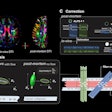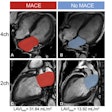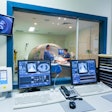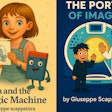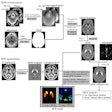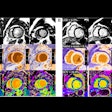Dear AuntMinnie Member,
Physician self-referral takes another hit this week, this time from a study showing that doctors who own their own MRI scanners have a higher rate of ordering negative studies than those who don't.
Researchers from the Medical University of South Carolina and other U.S. institutions analyzed the rates of negative shoulder MRI scans for two orthopedic groups serving the same demographic community. Perhaps unsurprisingly, they found the group that owned its own scanner had higher rates of negative scans -- in which the patients turned out to be normal -- than the group without a direct financial interest.
The study hints that unnecessary imaging utilization could be occurring in the self-referring group. The findings are particularly salient given the U.S. government's growing interest in tackling the in-office ancillary services exception in the Stark self-referral law, which enables doctors who own their own scanners to self-refer. Learn more about the study by clicking here or visit our MRI Digital Community at mri.auntminnie.com.
Vetting expert witnesses
If you've ever been the target of a medical malpractice lawsuit, you know how frustrating it is to be the subject of testimony by an expert witness. Hindsight is 20/20, as they say, and it's never difficult to point out the foibles of others after the fact.
But what if there was a service that enabled you -- or, more specifically, your defense attorneys -- to vet expert witness testimony? A new company called Clear Review aims to do just that, and it is the subject of a company profile by associate editor Kate Madden Yee.
Clear Review has developed software that can be used to rate the performance of expert witnesses, giving all of the parties in a lawsuit a window on their credibility. Find out how it works by clicking here.
CT and cataracts
Finally, new research from Taiwan indicates that repeated head CT studies -- perhaps as few as four scans -- could increase the risk of a patient developing cataracts later in life.
In a study of more than 30,000 subjects, researchers found that cataracts developed at twice the rate in those who had repeat CT scans compared with those who didn't. The risk rose along with the number of scans received, with patients getting more than four scans having twice the susceptibility.
Read more by clicking here, or visit our CT Digital Community at ct.auntminnie.com.



.fFmgij6Hin.png?auto=compress%2Cformat&fit=crop&h=100&q=70&w=100)
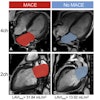


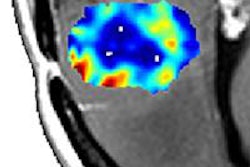
.fFmgij6Hin.png?auto=compress%2Cformat&fit=crop&h=167&q=70&w=250)


